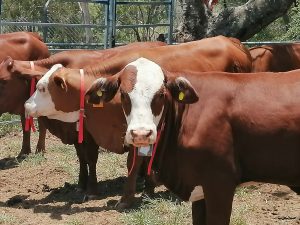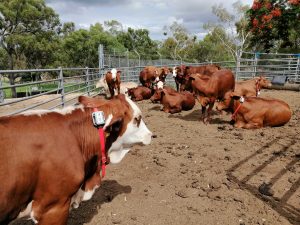Calf 48 hour – better detection of calving events for improved productivity
 The ‘Calf 48 hour’ project is evaluating and enhancing technologies to detect parturition events in cattle in order to improve diagnosis of causes of calf loss in extensive grazing systems.
The ‘Calf 48 hour’ project is evaluating and enhancing technologies to detect parturition events in cattle in order to improve diagnosis of causes of calf loss in extensive grazing systems.
Led by CQUniversity Australia in partnership with the Northern Territory Government’s Department of Industry, Tourism and Trade (DITT), the focus of this Meat and Livestock Australia (MLA) funded project is on calf losses that occur in the first two days of life.
Researchers believe most deaths happen in this critical timeframe, but the exact reasons remain unknown.
Therefore, the broad objectives of the Calf 48hr project are to:
-
- better understand why and how calves are being lost
- develop sensor systems that will one day be used by producers to monitor their own cattle and determine the causes of calves in their specific conditions.
The expected outcomes of the Calf 48 hour project are direct improvements in the welfare of animals and improvements in productivity of our cattle industry through increased survival rates.
 Technology for remote locations
Technology for remote locations
Beef cattle producers in northern Australia face a massive challenge in monitoring and, if needed, intervening during calving, simply because nobody can know for sure when and where a breeder is during delivery in such remote locations.
During Phase 1 of this project, CQUniversity researchers are evaluating a number of sensor systems to improve detection of location and behaviour data of cattle during calving. Improving the performance of these technologies will enable producers to know when cows calve, even in extensive and remote locations.
Phase 2 will be conducted on a large property on the Barkly Tablelands in collaboration with the DITT team where researchers from across northern Australia will combine their forces. The area chosen is representative of the extensive grazing systems of the north, where heat, distance to water, predation and a range of other variables are ongoing challenges to animal welfare and productivity.
For more information
Contact Dr Diogo Costa via email d.costa@cqu.edu.au or phone 0409 445 454.